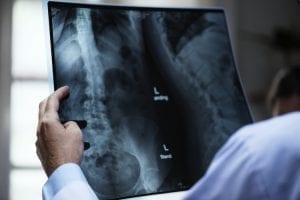While it’s one of the lesser known professions in the legal sphere, a forensic economist is an integral cog in the legal machine.
Forensic economists are key in delivering justice within the legal system. If you’ve never heard of this field, however, you’re likely wondering: what are forensic economics? According to the National Association of Forensic Economics (NAFE), this field marries economics with law: it refers to the practical application of economic methods to the legal framework. Given the wide scope of responsibility that these economists face, their exact duties vary depending on the industry they work within. Below are three examples of legal sectors in which forensic economists play an important role.
1. Family Law (Child Support)
One sector of law in which forensic economists hold great significance is family law, specifically in matters of child support. Contrary to popular belief, there is little relationship between the child support guidelines enacted and implemented and the actual cost of raising the children. This means that there can be extremely high financial stakes for the involved parties, which opens the door for the participation of forensic economists. A forensic economist has the capacity to calculate and present a rational, economic-based recommendation for the amount of child support to be paid.
2. Personal Injury Law (Calculating Damages)
Forensic economists are also integral in personal injury law. They use standards of economic analysis to determine the amount to be paid to a victim in damages if liability is detected in a personal injury lawsuit. When calculating personal injury damages, a forensic economist must consider an array of factors, including:

- The nature of the incident
- The nature and severity of sustained injuries
- The nature and severity of pre-existing injuries or conditions
- Age and life expectancy of the victim
- Loss of income
When it comes to loss of income, a forensic economist must consider two distinct elements: the actual amount of lost income as well as the period of time over which that income would’ve been earned. Forensic economists work alongside personal injury lawyers to secure the best possible outcome for the client.
3. Employment Law (Discrimination Cases)
When it comes to employment discrimination cases (such as failure to promote or wrongful termination lawsuits), forensic economists are required to perform a number of tasks that will vary depending on the nature of the claim. In wrongful termination cases, for instance, forensic economists must calculate the difference between the plaintiff’s potential earnings if the discriminatory act had not occurred compared to what the plaintiff is expected to earn in the wake of the discriminatory act. The difference between the two represents the plaintiff’s losses.
Forensic economists can assist in both single-plaintiff employment cases as well as class action cases. When it comes to single-plaintiff cases, forensic economists are mainly involved in the damages phase (i.e. calculating damages). On the other hand, in class action lawsuits, forensic economists are involved in both the damages phase as well as the class certification.
Clearly, forensic economists are vital in attaining justice across several areas of law, from family law to personal injury law to employment law. While it’s one of the lesser known professions in the legal sphere, a forensic economist is an integral cog in the legal machine.


Join the conversation!